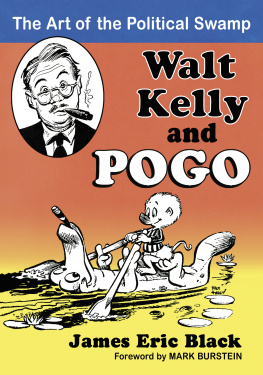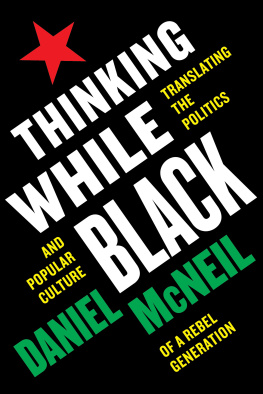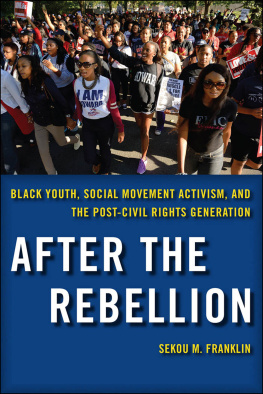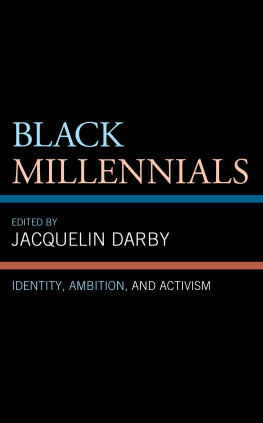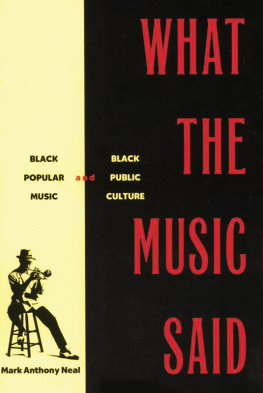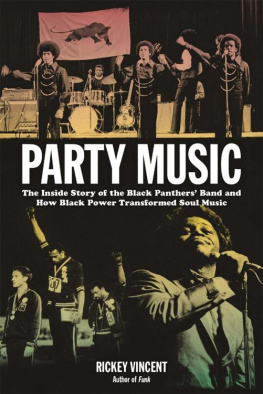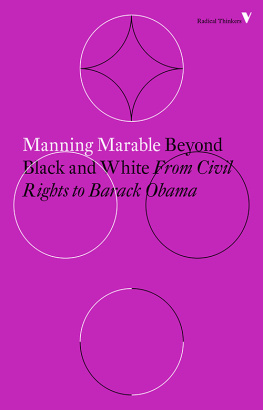www.upress.state.ms.us
The University Press of Mississippi is a member
of the Association of American University Presses.
Copyright 2014 by University Press of Mississippi
All rights reserved
Manufactured in the United States of America
First printing 2014
Library of Congress Cataloging-in-Publication Data
Post-Soul Satire : Black Identity After Civil Rights / edited by
Derek C. Maus, James J. Donahue.
pages cm
Includes bibliographical references and index.
ISBN 978-1-61703-997-3 (hardback) ISBN 978-1-61703-998-0 (ebook) 1. African Americans in mass media. 2. African AmericansRace identity. 3. Satire, AmericanHistory and criticism. 4. African Americans in literature. 5. African Americans in motion pictures. 6. African Americans in popular culture. 7. African AmericansIntellectual life. I. Maus, Derek C., editor of compilation. II. Donahue, James J., editor of compilation.
P94.5.A372U565 2014
302.2308996073dc23
2013046022
British Library Cataloging-in-Publication Data available
Acknowledgments
James J. Donahue would like to thank Maryemma Graham for her early instruction in, and passion for, African American literature. He would also like to thank Kathleen Kelly, Jerry Phillips, Robert Stanton, and Robert Tilton for their instruction and encouragement over the years.
Derek C. Maus would like to thank a host of teachers, mentors, and colleagues who have nudged him down the road to personal maturity and professional competence. These include: Tandy Cobb, Matilda (James) Buchanan, Susan May, Charles Brown, Charles Lance, Janet Tucker, William Tucker, Lynda Coon, David Edwards, M. Keith Booker, Suzanne Mac-Rae, Keneth Kinnamon, Margaret Jones Bolsterli, Christopher Putney, Madeline Levine, Julius Rowan Raper, Pam Cooper, Philip F. Gura, Richard Rust, Susan Pearsall, Marc Fusco, Shannon Wooden, Kathleen Drowne, Christopher Goodson, Jeffrey Campbell, Robert Spirko, Bryan Sinche, Jonathan DAmore, and the utterly inimitable force of nature that is Linda Wagner-Martin.
Together, we would like to thank our SUNY Potsdam colleagues Christine Doran, Libbie Freed, Christina Knopf, Jo Luloff, Donald McNutt, Liberty Stanavage, and John Youngblood for their good cheer, movie recommendations, calming advice, and/or their steadfast dedication to therapeutic evenings of bowling during the time in which this book was assembled.
Additionally, we wish to thank Camille Alexander, Rene Ater, Brendan Beirne, Daphne Brooks, Gena Chandler, Michelle Charles, Earle Fisher, Molly Hatcher, Regina Jones, Gerald Joyner, Jeannine King, Lovalerie King, Michael Levine, Paul Mahaffey, Claudia May, Sarah Newman, Laura Quinn, Joshunda Sanders, Tai Smith, Asali Solomon, Ken Stiggers, Doug Taylor, Dana Williams, and Katherine Zakos, for their contributions to making this volume stronger.
We also wish to thank Leila W. Salisbury, Craig Gill, Katie Keene, Mallory Little, Courtney McCreary, Steve Yates, and all of the other staff at the University Press of Mississippi for their efforts in helping to produce the final version of this book. We especially wish to thank the anonymous reader whose comments in the initial stages of composition helped us improve the volumes coherence immensely.
Finally, we wish to thank Walter Biggins, whose enthusiasm contributed to this project in countless ways and without whom its publication would not have been possible.
Mommy, Whats a Post-Soul Satirist?: An Introduction
Derek C. Maus
Author/blogger Patrice Evansa.k.a. The Assimilated Negropublished an online essay in 2008 that lauded the return of Aaron McGruders Boondocks television series while simultaneously lamenting the seeming lack of satire in mainstream black culture: Why does it seem like black people are missing the boattreating the SS Satire like a slave ship? Sometimes it feels we only get the joke if its the lowest common denominator, otherwise we have to put on our suits and let Oprah or Tyler Perry hold our hands and make sure theres a heavy Maya Angelou level of respect.... Where are the black branded satirists? Maybe we dont get it. Maybe we dont care to get it. Are there no satirists because of the lack of demand? It cant be for lack of opportunity. Every week we get a new race-event begging for lampooning: Watson, Jena 6, OJ, Imus, Michael Richards, Vick... all present unique opportunities to make a joke that might mean a little more to someone with melanin. Evans goes on to engage in some speculative armchair psychology, wondering openly if what he calls the critical, literary, and detached elements of satire are not barriers to African Americans participation in this mode of cultural commentary. He concludes by arguing that black-produced satire is more necessary than ever as part of continuing processes of racial uplift and cultural self-determination: Satire at the highest level is practical art; content that can impact a bottom line through money as well as productive criticism. When we laugh at our literacy rate, or the ridiculousness of Flavor of Love, or how we can use race-events to get us on the red carpet, we are making light, but also setting the groundwork for raising the bar. After we laugh, we can settle into the reality of making the punch line dated. Then we can look for something new to laugh at and do it all over again. But until we loosen up and stop taking ourselves so seriously on everything, I fear we wont be taken seriously about anything (If You Cant). Not surprisingly, Evanss forthright article garnered considerable attention around the Internet, in the process bringing a discussion that had been going on for some time within academia to a wider audience. This collection of scholarly essays about satire in contemporary African American culture is an effort to add further depth and breadth to these existing conversations, examining both the premises that undergird Evanss claims (among others) and particular works by a wide-ranging sample of African American satirists from the past thirty years.
Our volume builds on the solid foundation laid by Darryl Dickson-Carrs African American Satire: The Sacredly Profane Novel (2001); Paul Beattys edited anthology of African American humor, Hokum (2006); Bambi Hagginss Laughing Mad: The Black Comic Persona in Post-Soul America (2007); Dana Williamss edited collection of essays,


